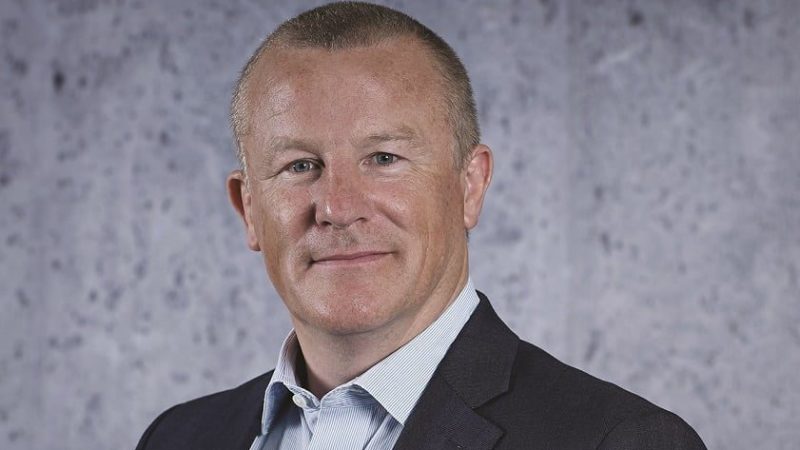The fact Neil Woodford took three weeks to tell the board of Woodford Patient Capital he had sold the majority of his stake in the investment trust has prompted calls for fund managers to tell markets when they deal in investment trust shares.
A regulatory filing from the board published on Monday morning revealed Woodford sold 60% of his stake between 3 and 8 July. However, the board said it only found out about the dealing on Saturday via a note from the fund manager.
The board simultaneously published another regulatory filing stating it was assessing other potential managers to run the closed-ended fund.
Woodford’s actions ‘reflects poorly’
Stifel was among those calling for market abuse regulations to be tightened up to require disclosure on such trades.
While board directors fall under the definition of “persons discharging managerial responsibilities” and must therefore disclose any dealing in the trust, fund managers are not required to disclose anything unless they hold more than 3% of the company. Woodford’s stake is currently 0.14%.
Portfolio Adviser has previously reported there has been no director dealing in the trust since the Equity Income fund suspended.
Stifel analysts Iain Scouller and Anthony Stern said the fact the board and the market did not know about the transaction for three weeks is “clearly surprising”, particularly given the sensitivity of the situation around the Woodford Equity Income suspension. “Given the importance of Neil Woodford to WPCT’s business and portfolio, it appears that this whole disclosure rule needs to be reviewed.”
JP Morgan Cazenove was also critical of the three-week period during which Woodford sat on this information before telling the board, with analysts Christopher Brown and Adam Kelly stating it “reflects poorly on the manager”.
Woodford blames tax liability for dealing
The WPCT trust board published details of Woodford’s note from Saturday explaining the dealing.
His note said the sole reason behind the dealing was to meet personal financial obligations plus a tax liability and described himself as a “reluctant seller”. It also revealed he is not taking dividends from the company while the fund is suspended. Woodford does not take a salary.
Woodford Investment Management said all of his financial investments are held in his funds but refused to clarify if Woodford retains a stake in the Income Focus fund. Woodford would not have had to sell the Oeic at a discount to net asset value or been under any obligation to reveal his dealing. Any assets he holds in Equity Income remain suspended along with other unitholders.
The dealing, beginning 3 July, came five days after the board submitted its most detailed update to market following the Woodford Equity Income fund suspension, whereby it said it was monitoring the portfolio manager. The RNS also pledged to reduce gearing and implement discount control once that had been achieved. It also reiterated its independence and the valuation policy in the filing, which was published on Friday 28 June.
Not the right message for shareholders
Despite his financial obligations, Woodford’s dealing is not the best message to send to markets, says Tilney managing director Jason Hollands.
“The timing obviously doesn’t look good at a point when the board is under the spotlight and there is pressure to consider the future of their management arrangements,” Hollands said.
Those comments were echoed by JP Morgan Cazenove, which said the share sale “is clearly not a positive signal to other shareholders”, while Stifel said the “development was unlikely to provide much confidence”.
Hollands added the fact Woodford isn’t taking dividends or income from the business was the right gesture but should have been made weeks earlier when the fund first closed and some people had been demanding he cut fees.
Managers have approached board to run WPCT
The fact the board of the Patient Capital Trust are currently assessing alternative managers to run the closed-ended fund has come as little surprise to analysts. The board has been approached by managers about the management of the investment trust but is also in the process of approaching managers “in order to undertake a full assessment of all potential management options”.
“It is not surprising, in our view, that the board is at least considering other management options given the current situation and performance under the current strategy since inception,” said JP Morgan Cazenove.
However, Stifel pointed out a number of factors to keep in mind, including the limited field of managers that could run the specialist portfolio, the uniquely low fees Woodford charges on the trust, plus the fact an incoming manager may call for a precautionary writedown of the unlisted holdings that make up 75% of the portfolio.
It also remains uncertain if an incoming manager would run the fund on an ongoing basis or go into ‘run-off’ mode with investments sold off and capital returned.
WIM in jeopardy
The loss of WPCT would be a further blow to the future of Woodford Investment Management, said both JP Morgan Cazenove and Stifel.
“While WPCT represents permanent capital, WIM earns no management fee from it and can only earn a performance fee but is currently far behind the hurdle,” said the JP Morgan Cazenove note. “In our view, it is not inconceivable that WIM could experience such severe outflows on its open-ended funds that it is no longer a viable business and has to wind down.”
Stifel also described the loss of the investment trust as a symbolic blow.
“Given the likelihood of significant outflows from WEIF when the gating is lifted and other losses of assets under management, the future of Woodford Investment Management’s business would be further questioned,” the note said.







